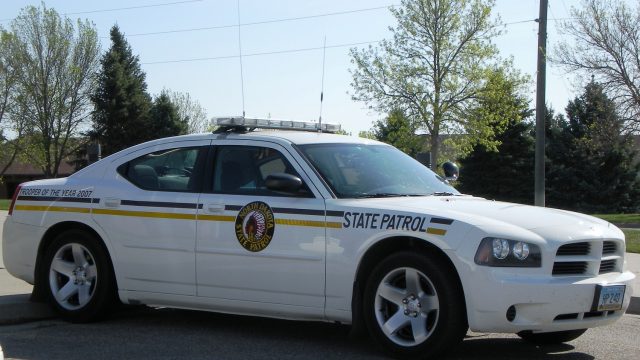ND Highway Patrol Now Says Their Arrest Goals-Not-Quotas Are Merely Preliminary

“A quota is a hard number that does not fluctuate,” NDHP spokesman Lt. Tom Iverson told me by way of explaining the difference between a goal and a quota. “A quota suggests a number that you ‘must’ achieve, or there will be consequences.” Whereas a “goal is flexible and suggests trying your best to achieve that goal. It is something to work toward and is hopefully something that can be achieved if you try your best.”
But after my story published a number of current and former state troopers contacted me to say that they feel the “goals” aren’t so flexible as Iverson let on, something confirmed by a Valley News Live story which aired last night (see the video above).
Captain Bryan Niewind of the North Dakota Highway Patrol told Valley News Live a goal is a ‘soft’ number. It’s the number of tickets each trooper should write in a year. When we asked how this goal is enforced…
“We have quality people working for our organization and we expect them to take those goals, think about them on a day-to-day basis, work to achieve those,” said Capt. Niewind.
But, Capt. Niewind admits that if a trooper doesn’t meet goals in each of eight categories, there could be disciplinary action.
“There could be what we call our action report, so written warnings might be issued,” said Capt. Niewind. “On top of that, it might be suspensions and or termination from our organization.”
Again, Lt. Iverson previously told me that the “goals” are not “quotas” because a “quota suggests a number that you ‘must’ achieve, or there will be consequences.”
If your boss says your output has to hit specific numbers, and the consequences for not hitting those numbers is disciplinary action up to and including termination, might you not as an employee feel like you’re being given quotas?
None of my trooper sources were willing to speak on the record because of a fear of retaliation, but I did ask Iverson yesterday (before the VNL report aired) to respond to what I was hearing from them. In his comments to me, Iverson is now calling the program, which was implemented in January, “preliminary” suggesting that the NDHP may be backing off the “goals.”
Here’s the full text of Iverson’s response to me (emphasis mine):
Good Afternoon Rob. We are aware that a performance appraisal system tied to pay is a sensitive issue in a law enforcement profession. We are also aware that as a law enforcement agency, we need to avoid setting specific minimum targets that could be interpreted as a quota. However, setting goals is important to ensure we continue a focused effort on crash prevention. It is also important to note that we expect our staff to operate within the guidelines of our agency’s enforcement policy. This ensures consistency to the public.
We are currently working on a new performance appraisal system. This new system is in its preliminary stages and many considerations have been weighed resulting in several changes. We strive to maintain a system that evaluates employees on the totality of what they do and what they accomplish. This is done in an attempt to better measure the extra duties a trooper may be involved in aside from traffic enforcement. Our focus is on quality and fairness, not only for our employees, but also for the public.
Our agency employs officers who are focused on improving traffic safety. We try to recruit employees who are self-motivated, have a strong work ethic, and believe in our agency’s mission. Our main goal is saving lives and reducing crashes, and that is done through a strong proactive enforcement and education effort. In order to save lives, we must be proactive. That does not mean writing a specific number of citations in a year, but it does mean actively patrolling our state’s highways and following our agency’s enforcement policy. That is precisely what the public expects of us. There are numerous vehicles on our roadways committing crash causing traffic violations on any given day, and our troopers are tasked with providing a strong presence and taking enforcement action on those observed violations. Traffic enforcement is an essential function of the Highway Patrol, but safety presentations, crash investigations, report writing, and courtroom testimony are a few of the many other areas of responsibility of a state trooper.
If a trooper is deficient in certain areas of their performance, to include traffic enforcement, they could potentially be placed on a performance improvement plan. If the trooper continues to be deficient in the areas laid out in the plan, other measures could be looked at to include withholding merit pay.
Currently, we do not have any employees on a performance improvement plan tied specifically to traffic enforcement. We are proud of all our employees’ efforts that help keep our roadways and motorists in North Dakota safe.
I’ve sent a follow-up to Lt. Iverson asking what changes are being made to the program.




